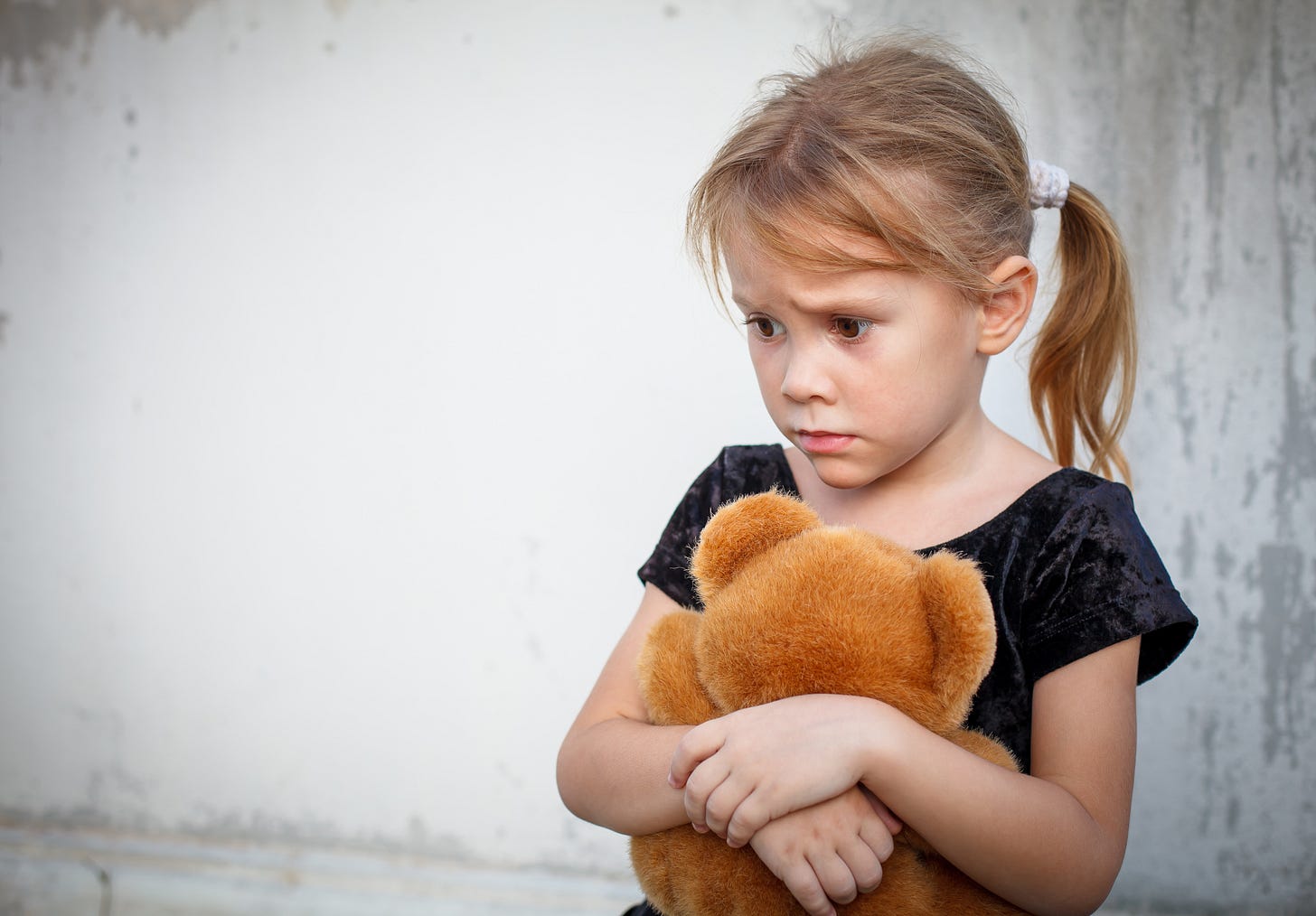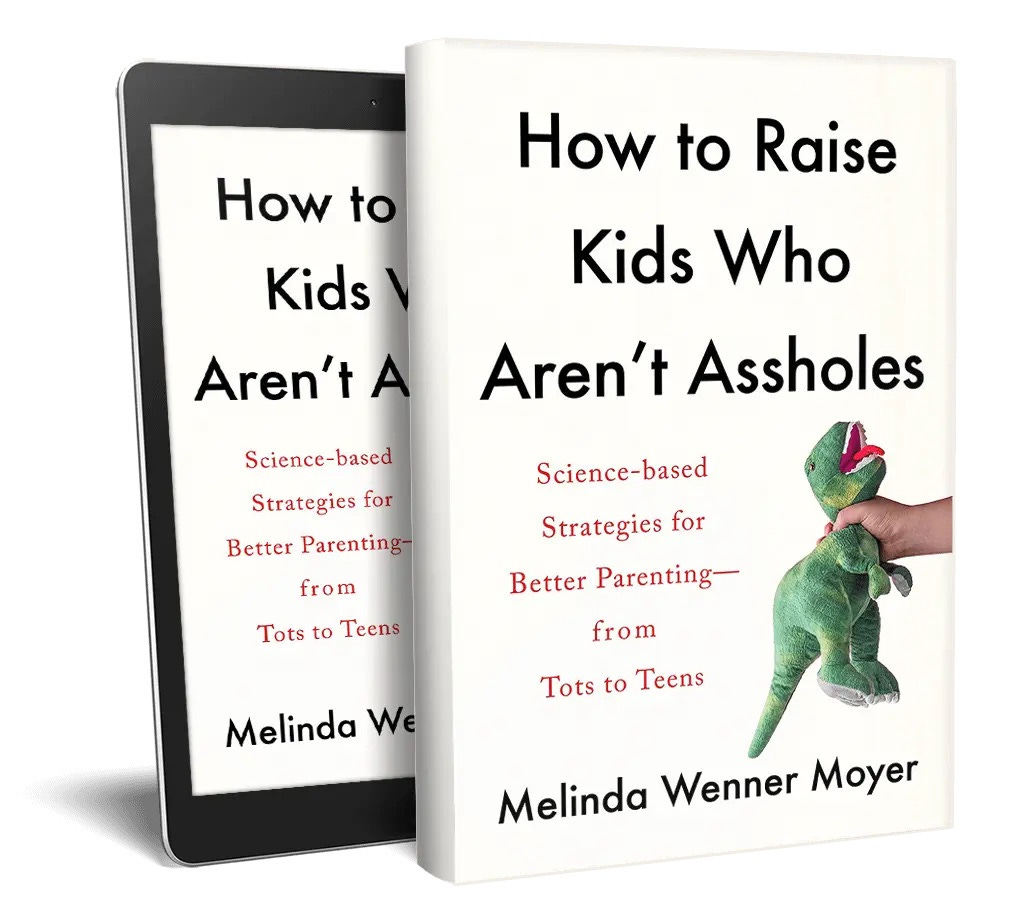My 10yo Had a Panic Attack
It was scary. Here's what happened.
On Friday afternoon, my husband and I picked our kids up from overnight camp in the Catskills. My daughter, who’s 10, was gone for nearly four weeks — by far the longest she’s ever been away from us. My 13-year-old son was gone for two. Both had a blast but were happy to get picked up — but I could tell that my daughter was feeling totally overwhelmed by the transition. She looked exhausted, tattered, sad, and confused. (Kind of like me, honestly, as I tried to wrap my head around having my kids back after two weeks of solo traveling and zero responsibilities. Transitions are hard for everyone! There’s also a lot going on in my life right now, which I promise I will share more about when I can.)
A few hours after being home, my daughter burst into tears. I asked what was wrong, and she said she missed her cabin mates. But the trouble really started at bedtime, as I knew it would. The tiredest point of the day, a major transition, pent up feelings, her belongings strewn everywhere and impossible to find…. a recipe for disaster. We’d been watching the Olympics and I told my daughter it was time for bed. She asked if I would come up with her to help her get ready (something she never does anymore — but I know regression is a common response to feelings of instability).
She brushed her teeth and got her pajamas on and then suddenly started getting riled up. She began talking and breathing quickly and grew panicked, saying that she couldn’t possibly fall asleep with her room so untidy. It kept building, and then she told me she couldn’t breathe and I realized it was because she was hyperventilating. She said, in between breaths, I don’t know what’s happening to my body and I can’t stop it. That’s when I knew she was probably having her very first panic attack. Her body’s alarm system, designed to go off in life-or-death situations, had been triggered even though there was no real threat nearby.
Though I am no stranger to anxiety, I’ve never had a panic attack myself. But I recognized the symptoms and told her that was what was going on. I reassured her that although it felt very scary, she was going to be okay. I then told her to try to breathe with me, and I began taking deep breaths and exhaling slowly and audibly so she could hear what I was doing. I essentially stopped talking and did nothing but rhythmically breathe — I assumed anything else I said to her wasn’t going to get through until she calmed her body down. (According to Seattle Children’s Hospital, when helping kids through panic attacks, addressing their breathing is often a good first step.)
At first, it didn’t seem like it was working. She kept talking and breathing quickly and crying. But I kept up my slow breathing and eventually, she started to slow down and breathe more in time with me. I felt a huge wash of relief.
Once she’d calmed down, I asked: What else do you think would make you feel better right now? And she said, I want something to squeeze. She got up and found her favorite stress ball and then sat back down on her bed and started rocking back and forth while squeezing it.
That helped her calm down more, and after a few more minutes, while softly rubbing her back, I said, You said you can’t sleep with your room this way. Do you think that’s true? She said yes. So then I said: What do you think would help you feel better about that? Would it help if we tidied up for five minutes? And she said sure, that would help. So I said: Since it’s late, let’s not worry about putting things in the exact right places, but we can at least get things off the floor and put them somewhere and you can organize more tomorrow.
She agreed, and we ended up moving some of the things from her floor to her dresser. By then, she seemed much calmer, and I asked her if she was ready for bed. She said yes, and I hugged her and sang to her (something we do every night) and we said our goodnights.
The next day, I brought up what happened. I again explained that what she’d experienced was a panic attack, and said that it happens to lots of people. I asked her if I could share the story here in the newsletter, and she gave me permission. I also asked her what I’d done, if anything, that had made her feel better, and she said breathing with her really helped — as well as the stress ball. I said, Okay, let’s make sure that you always have something nearby that you can squeeze if it happens again. We’ll definitely be packing a stress ball in her camp and school backpacks from now on, just in case. And we’ll practice slow, deep breathing every time she feels anxious.
I’ll also talk about what happened with her therapist, who specializes in cognitive-behavioral therapy (CBT), one of the best treatment for panic attacks. Sometimes, therapists use a form of exposure therapy to help kids get used to the physical symptoms associated with panic, so attacks feel less scary the next time.
Have you or your kids ever had a panic attack? What kinds of remedies do you recommend? Please share in the comments!





Both of my girls had panic attacks, but not until they were much older, 16 and 18. Interestingly, each of them tended to reacted negatively to coming home from sleep-over camp. Once, the younger one said, “I wish that I could live forever at camp. Camp is my real home.” That particular transition is truly challenging for children, no matter their age. Sounds like you did a great job, calm mother, with your daughter!
Having walked many through panic attacks (professionally and personally) you did a great job of getting through a difficult moment. One of thing that can be helpful is reminding the person in a state of panic that a process has started and we will need to to ride it out and we will do it together, it's scary to feel like the experience won't ever stop and to know that it will is helpful. Squeezing is great (she has good instincts for what she needs) or pressing feet or hands into the ground or wall can also help someone feel more grounded or less in their head. Such a tough thing to watch someone you love in distress.